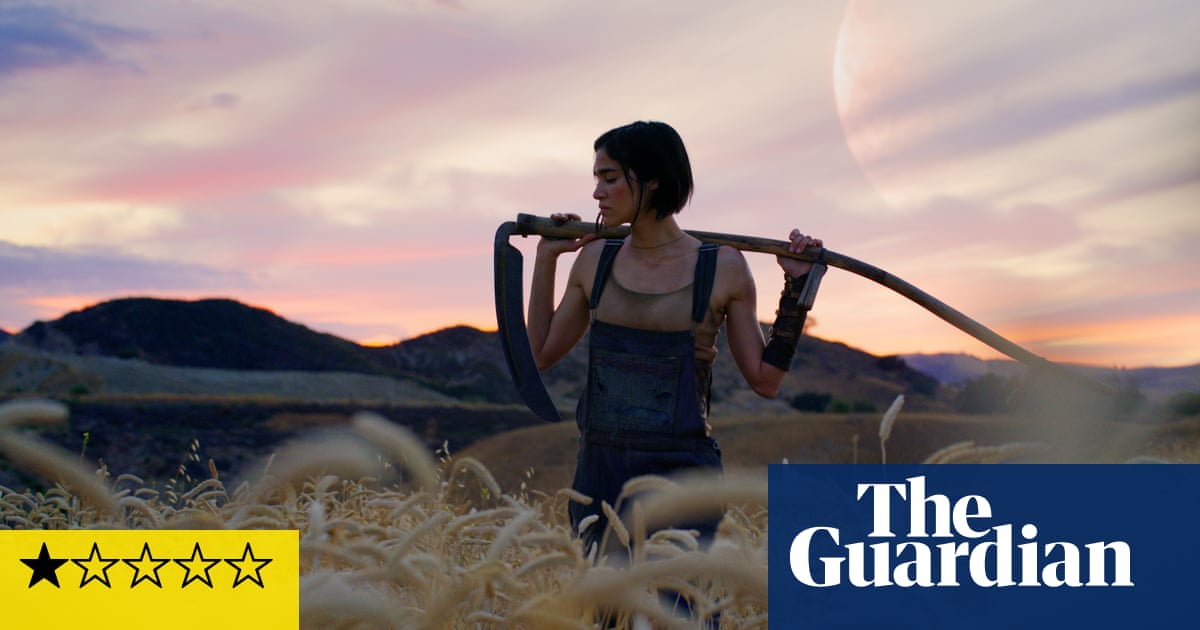
Z
Ack Snyder presented Rebel Moon as a fusion of Seven Samurai and Star Wars, a bit like promoting a groundbreaking invention as a combination of the wheel and sliced bread. The former showcased Akira Kurosawa’s impressive talents in battle choreography, lighting, and composition, resulting in an “epic” label that still holds weight; the latter was a rare explosion of movie stardom, clever dialogue, and captivating production design that transformed a moderately-budgeted space adventure into a global sensation. Both are essentially irreplaceable. Despite Snyder’s persistent attempts, both Lucasfilm and Warner Bros declined his ambitious proposal, until Netflix finally approved his long-dreamed blockbuster project.
However, the final result only vaguely shows ambition, weakened by a half-hearted attempt to make another CGI-filled saga that determines the destiny of the universe. It could even be argued that it is not complete at all – this 134-minute movie only covers the initial phase of gathering the team together, a small portion of the story that will be concluded in a second installment next year. One can only hope that Snyder has saved the best parts for his climactic ending, and not just the epic battles that are noticeably absent from an adventure that seems more fitting for a laptop screen. (Fans of Snyder may realize that his trademark slow-motion action scenes resemble screensavers more than anything else.) There is still time for him to add depth to his one-dimensional characters, a sense of realism to his bland greenscreened settings, and a greater meaning to the unoriginal plot, all of which currently leave a sense of emptiness. However, by the end of the movie, expecting viewers to return for more feels like a lot to ask.
In film school, some professors use Star Wars as an example to teach the theories of Campbellian mythmaking, which identify and explain the narrative elements that have been used since ancient Greek times. Snyder shows a strong understanding of these concepts in his traditional approach to writing, but he neglects the importance of refreshing archetypes with new contexts. The story takes place on a simple farming planet in the galaxy, where a Hero (played by Sofia Boutella, stoic and flawless as Snyder prefers) must protect her village from an abstract Evil Empire. This empire gained power in a past disaster that also resulted in the death of our Hero’s family. The Final Boss then took her in and trained her in combat, preparing her for revenge. Unfortunately, Snyder confuses exposition for world-building, with lengthy explanations that detach the audience from the fantasy rather than drawing them in.
The Mini-Boss, played by Ed Skrein with a British accent and striking cheekbones that mark him as a villain, is attempting to seize control of her people’s grain. Along with her Sidekick, a castrated Michiel Huisman, she travels through the universe recruiting supporters for their cause. One such ally is a selfish yet charming mercenary, who we will refer to as Not Han Solo (portrayed by Charlie Hunnam, who appears more awake than most of his co-stars). These characters are often referred to by their roles rather than their names, as they are poorly developed and hard to remember due to the poor sound quality. Other characters have more memorable names, but only for their absurdity. For example, General Titus (played by Djimon Hounsou) and the squid-faced King Levitica are mentioned without any explanation. The writing fails to justify these references. Some names are just ridiculous, such as the brother-sister duo known as Blood Axe or Skrein’s effeminate colonist, Atticus Noble.
Despite a few cleverly designed creatures, the unique elements fail to come together to create a vibrant sense of individuality; a fleshy parasite controlling its human host like a puppet can be found in Snyder’s version of the Mos Eisley cantina, but the notorious hive of scum and villainy resembles an upscale sushi restaurant with its tidy interior and warm lighting. Even when sci-fi ventures into chaos, it typically produces some memorable strangeness, a tradeoff that has earned films like Jupiter Ascending and Valerian and the City of a Thousand Planets loyal cult followings. Unfortunately, this is not the case here, as Snyder’s serious tone lacks any hint of humor, intentional or otherwise. He viewed the battle for Somewhere-or-Other as his greatest work, with its lengthy duration and vast scale unmatched in his career. One would expect a sense of madness and excitement from an artist indulging in their wildest ideas, but instead, Snyder’s supposed masterpiece is simply dull.
-
.
“The first installment of Rebel Moon, titled A Child of Fire, is currently available in certain theaters and will be released on Netflix on December 22nd.”
Source: theguardian.com


